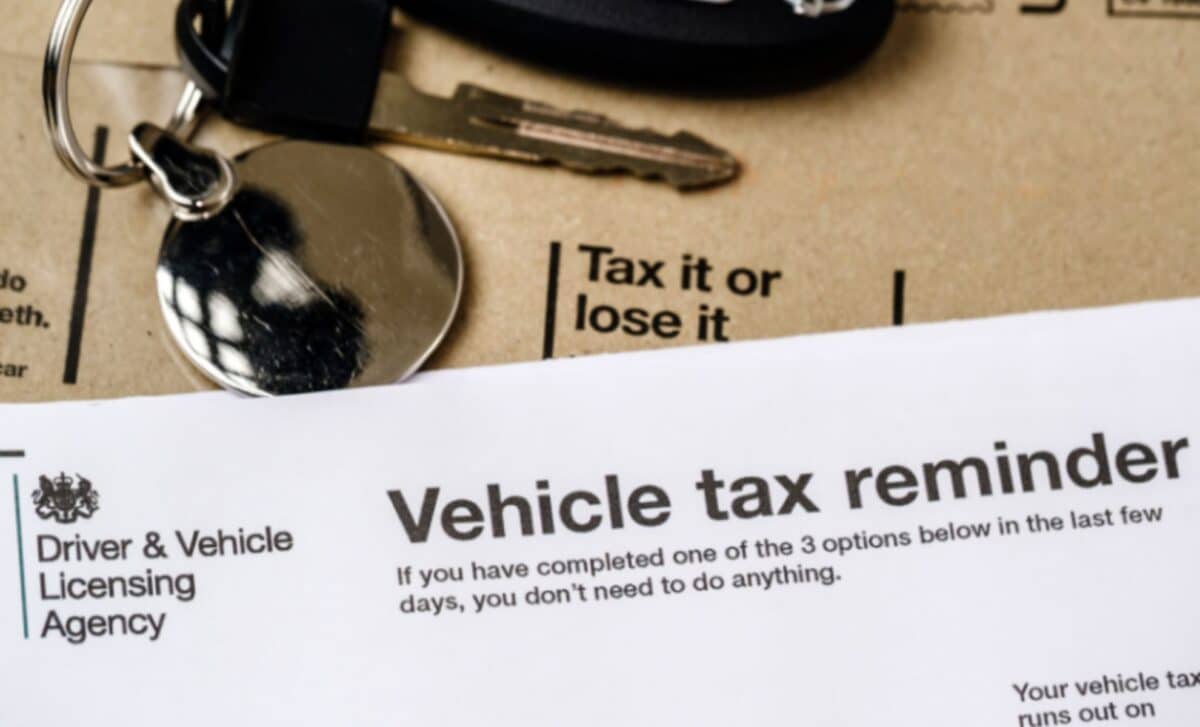UK drivers have been warned to brace for substantial increases in car tax rates under new government reforms set to take effect in April 2025. The changes, announced by Chancellor Rachel Reeves as part of the Autumn Budget, are designed to accelerate the transition to electric vehicles (EVs) and curb the environmental impact of petrol and diesel cars.
These reforms will see tax rates for high-emission vehicles rise sharply, while zero-emission cars will continue to benefit from the lowest rates, maintaining their position as the most cost-effective option. However, the measures are not without controversy, as many motorists face significantly higher costs, raising concerns about affordability and accessibility during the ongoing cost of living crisis.
How Car Tax Rates Are Changing
Under the new tax structure, vehicles will face charges based on their CO2 emissions. The government aims to create stronger incentives for drivers to opt for low- or zero-emission vehicles, aligning car tax policies with its climate goals.
- Zero-emission vehicles: Tax frozen at £10 for the first year, remaining unchanged until 2029/30.
- Vehicles emitting 1-50g/km of CO2: Tax set to increase to £110.
- Vehicles emitting 51-75g/km of CO2: Tax rising to £130.
- Vehicles emitting over 75g/km of CO2: First-year taxes will double, depending on emission levels.
In addition, changes will affect Company Car Tax. For example, zero-emission vehicles will see percentage tax increases, reaching 9% by 2029/30, while hybrid vehicles and higher-emission cars will face corresponding increases.
The Push for a Greener Future
The reforms reflect the government’s commitment to addressing climate change by significantly reducing transportation-related emissions, one of the largest contributors to the UK’s carbon footprint. By maintaining a low tax rate of £10 for zero-emission vehicles, the government hopes to make EVs a more appealing option for motorists, aligning with its goal to phase out internal combustion engine vehicles over the next decade.
However, critics argue that the affordability of electric vehicles remains a major barrier for many drivers. Despite the financial incentives provided by the tax reforms, the upfront cost of purchasing an EV is still prohibitive for many households. Additionally, concerns about the availability and reliability of charging infrastructure—especially in rural areas—continue to deter motorists from making the switch.
To address these concerns, the government has pledged to accelerate the rollout of EV charging points across the country. Fuel duty will also remain frozen, and the temporary 5p cut in fuel prices has been extended for another year. According to GB News, these measures will save the average driver approximately £59 annually during the 2025/26 fiscal year. While these steps offer some relief, critics argue they are not enough to offset the broader financial impact of the tax increases on high-emission vehicles.
Financial Implications for Motorists
The new tax structure has sparked concerns about its financial impact on drivers, particularly those who rely on petrol or diesel vehicles for work or essential travel. High-emission cars, especially those valued over £40,000, will be hit hardest by the new tax rates, significantly increasing the cost of ownership. This has raised fears that lower-income households, which may not have the means to invest in an electric or hybrid vehicle, will bear the brunt of the reforms.
While the changes aim to drive environmental progress, some groups have called for greater support for those transitioning to EVs. Industry experts emphasize the need for subsidies, grants, and tax relief programs to help bridge the gap between policy goals and the financial realities facing many drivers. The British Vehicle Rental and Leasing Association (BVRLA), for instance, has warned that the government must ensure affordability and access to charging infrastructure to avoid alienating rural and low-income motorists.
What Drivers Should Do
As the April 2025 deadline approaches, drivers are urged to assess their options and consider switching to lower-emission vehicles to avoid higher tax rates. Motorists should also explore available incentives, such as government grants for purchasing EVs or upgrading to hybrid models. These reforms aim to make zero- and low-emission vehicles more financially viable, but planning ahead will be key for those looking to minimize their costs.
For businesses, the changes to Company Car Tax highlight the importance of reviewing fleet policies and transitioning to greener alternatives where possible. Companies that proactively adopt EVs may not only benefit from lower tax rates but also enhance their environmental credentials.
Despite the challenges, the government is confident that these measures will lead to a cleaner, more sustainable future for the UK’s transportation system. However, it remains to be seen whether the transition will be equitable for all drivers, especially those already struggling with rising living costs.










All very well for big companies who get large discounts for upgrading their fleets. But for average Joe on a pension living in a flat where can you charge your car let alone buy one.
I have a hybrid mpv small yes only me and my wife both retired, but bought it new , we drive virtually all on electric charge on cheap overnight electric and solar when we can. But ! Most of these type of cars cost over £40000 which incurs the unfair
“ luxury car tax “of £325 per yr for 5 yrs on top of what you would normally pay . Unfair because it was introduced in 2017 when £40000 would buy a “ luxury car “ inflation and car prices have increased and now a lot more ordinary electric/ hybrid cars fall into this bracket a fact the government are keeping very quiet about,conveniently. That will definitely stop a lot of people changing to electric vehicles, my small nice hybrid now has just cost me £590 for a year !
We are pensioners living in Scotland and a car is ESSENTIAL as public transport doesn’t serve us. We have a 2012 skoda diesel suv. We don’t have the ability to buy another car. Why is it people like ourselves that are being penalised and our pockets hurt? Perhaps use postcodes. City dwellers with a plethora of public buses, trains and some with metros, should be penalised more if they want a car just for ‘convenience’ or ‘to get away’.
The cheapest new electric car in the UK is the Darcia Spring which has 16 group for insurance!
I am aged 81 which means that I am already penalised for car insurance even though I have 15 years accident free.
Sorry to say I just can’t afford these prices, in fact my next car will have to be an insurance group maximum of five.
I need a car because I live in a village without local bus service.
Merry Christmas to everyone
I am a person who alredy live like I dobecause of the government. I’m a vanlifer and now they want to take our homes away from us with high emersion chargers.So what are we ment to do when we can’t afford to pay the full amount that they are saying we must pay with a posable chance they will get higher.Are they going to rehome all that are because of the government we are put of the road and made homless Will they rehome us because there are an awful lot of us driving around in older van.
Evs will never have the infrastructure sufficient to cope with a country wide take up ,so why dont this government realise this .we should be looking at more sustainable systems such ad hydrogen or the new water engines being developed.please for God’s Sake get rid of this EV nonsense
Once again this government are increasing costs to pensioners and people who live in rural areas where public transport is not an option and a car is not a luxury but essential.
The cost of an electric vehicle is prohibitive for most people
All very well for the people who live and work in London where they have public transport.
5hey tell us they’re cheap to run but where can you charge them service them how much is insurance and some ferries will notnot take them due to fire risk does it cost more to replace batteries ie whole car. n 8 years than to replac
I have worked all my life and never been able to afford a new car as life has other priorities. How am I as a pensioner supposed to be able to afford a new electric vehicle. This not persuasion it is coercion. Just more stress in my retirement.Maybe I’m fortunate to have a terminal diagnosis so won’t have to endure this nonsense for long.
I have just bought a petrol hybrid car. It will double my range. However my question is this, if I had bought a full electic, therefore satisfieing very cheap tax and bought a generator to charge it, I would beat the tax. The government set the emision target way too high in the first place. I go hiking and walking with not a electric charge point anywhere. Put the infrastructure in place first, people will then buy into electric vehicles.
So joe average is about to be battered into submission by this horrendous governments onward push to cripple the country with not one thought about anyone or how it will affect us!
I recently cancelled my new ev as the cost of owning was going to be ìn exess of £700pm before charging it! Also zero incentives or help to buy not even towards the approx £1000 to install a home charger
The big challenge facing EV adoption, being an owner is depreciation. Whether a first or second owner my experience is you purchase will more than half in value within 18 months. What incentive to spend £95k on a new model with extended range only for it to be worth < £50k 18 months later. The same applies in my experience buying a 3 year old EV for £45k and it being worth £18k less than 2 years later. Depreciation or high initial purchase prices will ultimately reduce adoption rates. Charging away from home at 10x the price of domestic off peak tariff rates also needs to be addressed. Without incentives or radical cost reduction programmes. from car producers – it’s going to be painful for adopters. EV’s the way forward for sure, but the economics just don’t make sense..,,
The big challenge facing EV adoption, being an owner is depreciation. Whether a first or second owner my experience is your purchase will more than half in value within 18 months. What incentive to spend £95k on a new model with extended range only for it to be worth < £50k 18 months later. The same applies in my experience buying a 3 year old EV for £45k and it being worth £18k less than 2 years later. Depreciation or high initial purchase prices will ultimately reduce adoption rates. Charging away from home at 10x the price of domestic off peak tariff rates also needs to be addressed. Without incentives or radical cost reduction programmes. from car producers – it’s going to be painful for adopters. EV’s the way forward for sure, but the economics just don’t make sense..,,
I don’t understand how we got to this situation, We live out in the stick so we bought the new MG3 self charging hybrid, nice car spoiled by the Nanny software for 2024 🙁 🙁 we have nowhere to charge a full EV I’m not sure how much the new car tax is going to be, we’re both elderly and disabled, it seems this country is trying to kill us all off one way or another while they live in comfort and luxury Grrrr
EVs are high in price and cannot be afforded as I am on a low wage there are no charging points locally and I cannot or afford a recharging point at home. I do not have a driveway and the current vehicle is parked on the road so any charging would have to cross a pavement which brings its own risks.I live in the country so I am dependent on a vehicle to go to work and any hospital appointments.